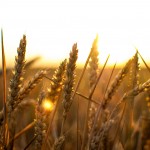“What can I have for breakfast?” For busy people seeking to improve the way they look, feel and perform, this question comes up a lot. Often it’s paired with, “Is breakfast the most important meal of the day?”
We’ll get to the initial question in a sec, but first, is breakfast the most important meal of the day?
As usual, it depends. The research around breakfast-eating is inconsistent so, as ever, our best bet is to consider the overall context of the diet. This means eating enough Calories, protein, fat and carbohydrates over the entire day or week to support your goals. It also includes your personal preference and tolerance.
So if you simply cannot bear to eat anything in the morning, it seems silly to force down some food for the sake of it …although, if you want to change, your appetite can adapt to new eating patterns.
Breaking the breakfast rules
We have this idea that some foods are ‘breakfast foods’ and others are not, but where does this come from? Is it true? Or is it merely an idea we’ve been sold by the food industry? Take a stroll down the breakfast cereal aisle and you’ll be bombarded by marketing efforts. Health claims are everywhere. …That, and cartoon characters. It seems the choice is either low-calorie cardboard, some sort of ‘superfood’ miracle muesli …or some sort of brightly coloured pellets. Hmm.
But there are no rules. Food is food regardless of the time of day. It’s unfortunate that many of the foods we’ve come to associate with breakfast offer us little in the way of nutrition.
During my adventures in Latin America, when I ventured to where the locals ate, rarely did I see them tucking into a bowl of cornflakes. Instead, I usually found people eating what they would eat any other time of day. In some countries that meant meat or even chicken soup at breakfast time. In Guatemala a ‘desayuno tipico’ (typical breakfast) includes rice and beans. In Colombia, ‘arepas’ of various description are popular. There are no rules.
Rather than limit our choices to the breakfast cereal aisle of the supermarket, a better approach is to base our choices on the fundamentals of good nutrition. That means eating nutritionally dense, whole, filling foods, while taking into account our personal preferences and goals.
“I don’t have time!”
One story I don’t buy is when people tell me they don’t have time for breakfast. Even if I have a personal training client at 6.30am, I still get up in time to cook some oats or a frittata. It is possible.
I do appreciate though, that people have other priorities, or value other things ahead of cooking breakfast in the morning. Some of my personal training clients find that a ‘super shake’ including protein powder and fruit and/or vegetable is a convenient way to give their body some nourishment first thing.
Aside from a shake or smoothie, oats or an omelette can be useful choices. As can last night’s leftovers! Alternatively, check out my post on how to make a frittata.
BIG IDEA: Whether or not breakfast is, for you, the most important meal of the day, should depend on your personal preferences.
TAKEAWAY: Ultimately, your choice at breakfast should:
- Suit your personal tastes and preferences.
- Contribute to your overall nutrition goals.
- Be nutritionally dense.
- Ideally, include some protein-dense food.
- Not be bound by arbitrary rules: if a chicken leg or salad works for you, go for it!
ACTION STEP: Ask yourself: Is my choice of breakfast contributing well to my overall nutrition requirements for the day? If not, maybe it’s time to try something different.
Always Keep Reaching!
Mike






Mike, I love frittatas and eat them quite often but is it ok to eat eggs every morning? I use different meats and veg but eggs are always included.
Thanks
Hi Robert, yes, it’s ok to eat eggs every day. The concern people have is usually about dietary fat increasing blood cholesterol and therefore cardiovascular risk but the literature doesn’t really support this. As ever, what matters is the overall context of your diet. Provided you’re eating an appropriate amount of protein, fat and carbs overall, you’ll be fine. Eat the eggs 🙂
Thanks! And obviously we’re talking about free range eggs.. 🙂